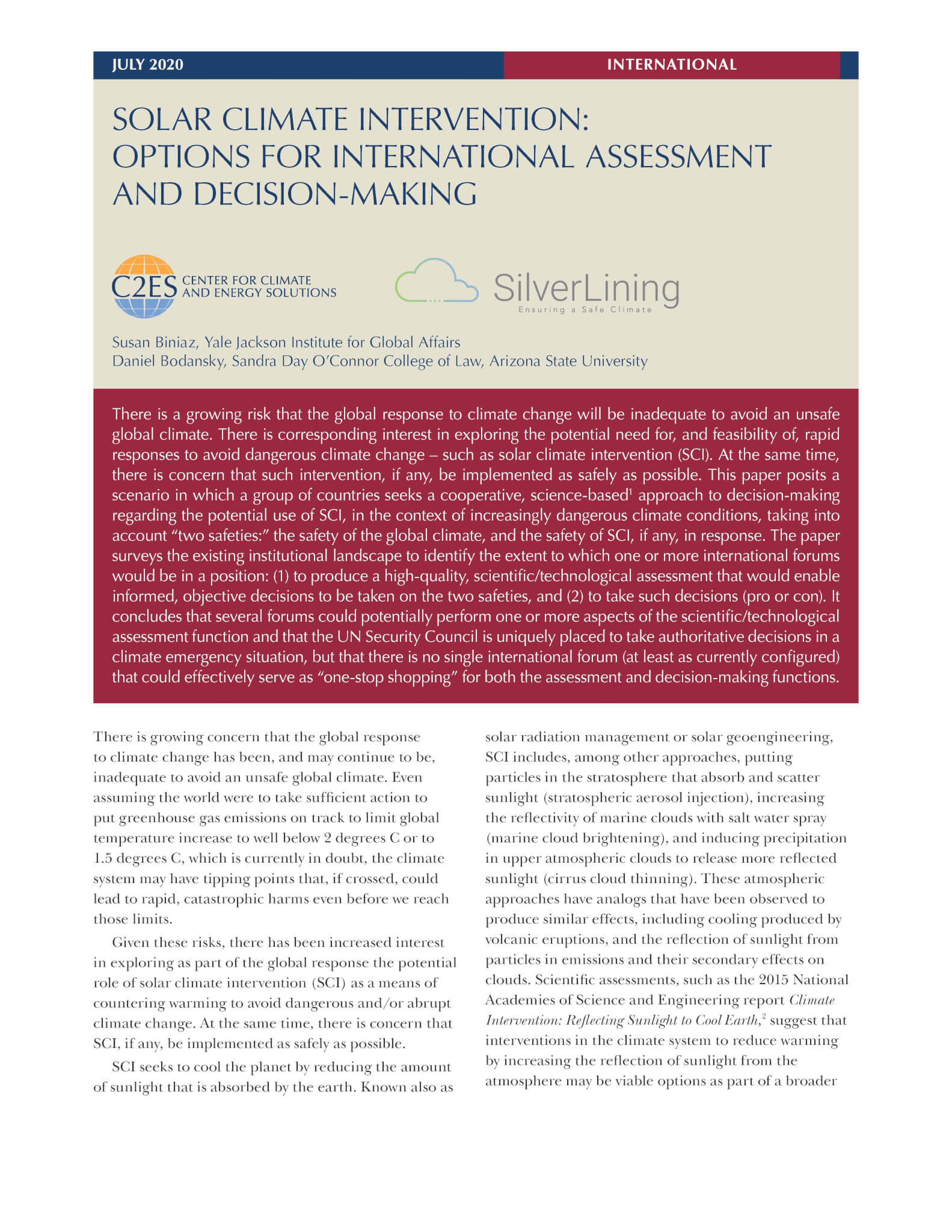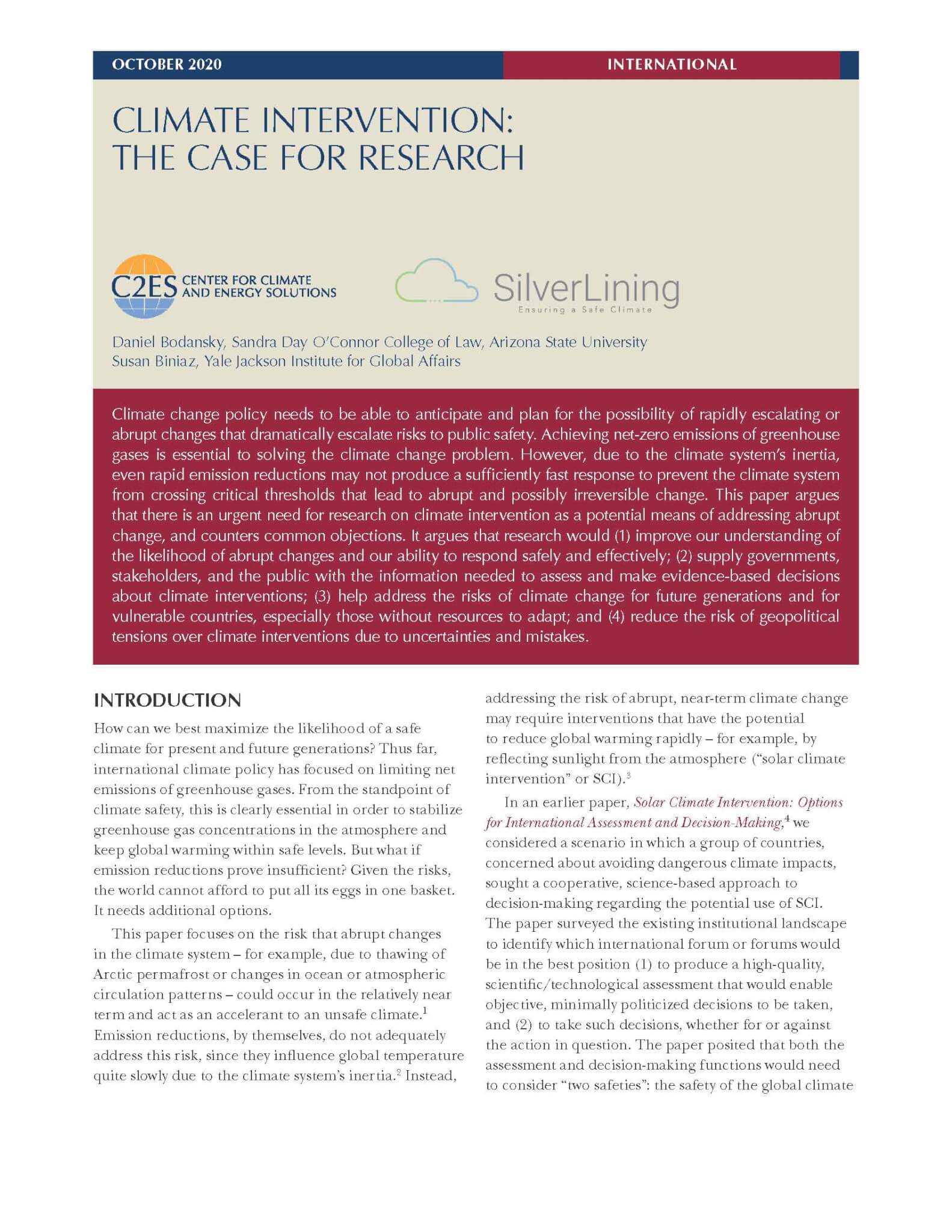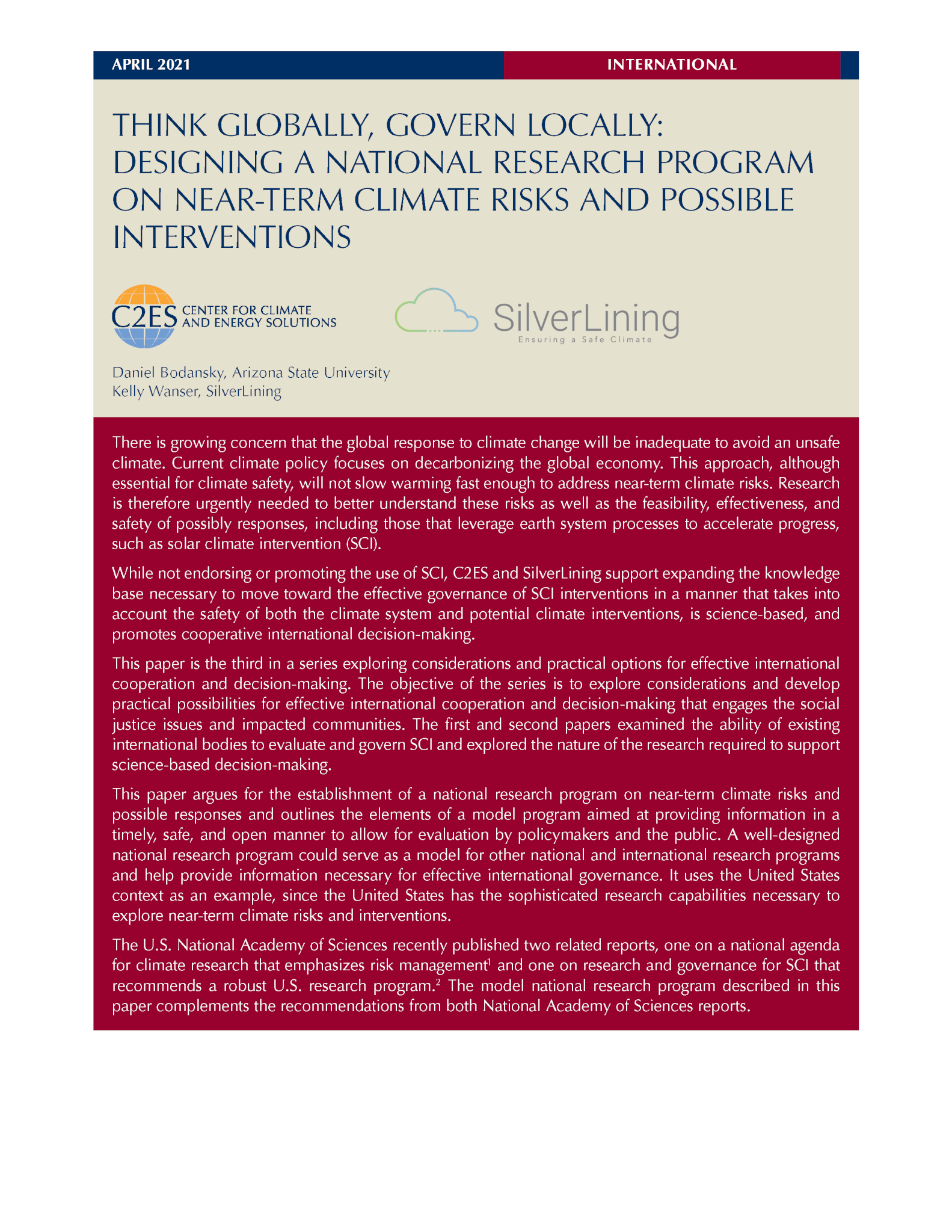There is a growing concern that the global response to climate change will be inadequate to avoid an unsafe global environment. Current climate policy focuses on decarbonizing the global economy. Although essential for climate safety, this approach may not slow global warming fast enough to address significant near-term climate risks. Therefore, research is urgently needed to better understand these risks as well as the feasibility, effectiveness, and safety of possible responses, including those that leverage earth system processes that might leverage earth system processes as may be beneficial, such as solar climate intervention (SCI). A better understanding of risks and technologies requires further understanding such that interventions, if to be undertaken at all, be implemented as safely as possible with regard to the climate system and the interventions themselves.
C2ES and SilverLining have partnered to produce a series of papers from international environmental law experts to help inform this critical debate. While not endorsing or promoting the use of SCI, C2ES and SilverLining support expanding the knowledge base necessary to move towards the effective governance of SCI interventions in a manner that takes into account the safety of both the climate system and potential climate interventions, is science-based, and promotes cooperative international decision-making. The objective of the series is to explore considerations and develop practical possibilities for effective international cooperation and decision-making.
 |
In Solar Climate Intervention: Options for International Assessment and Decision-Making, international environmental law experts Sue Biniaz and Dan Bodansky assess the ability of existing international bodies to evaluate and, potentially, govern SCI. |
 |
In Climate Intervention: The Case For Research, Biniaz and Bodansky delve further into decision-making regarding SCI, which would require a scientifically rigorous assessment of two “safeties,” the safety of the global climate and the safety of possible interventions to reduce or arrest global warming. They discuss the nature of the research required to support such science-based decision-making and address common objections to undertaking it. |
 |
In Think Globally, Govern Locally: Designing a National Research Program on Near-Term Climate Risks and Possible Interventions, the third paper in this series, Dan Bodansky and Kelly Wanser from SilverLining argue for the establishment of a national research program on near-term climate risks and possible responses, and outlines the elements of a model program aimed at providing information in a timely, safe, and open manner to allow for evaluation by policymakers and the public. |
